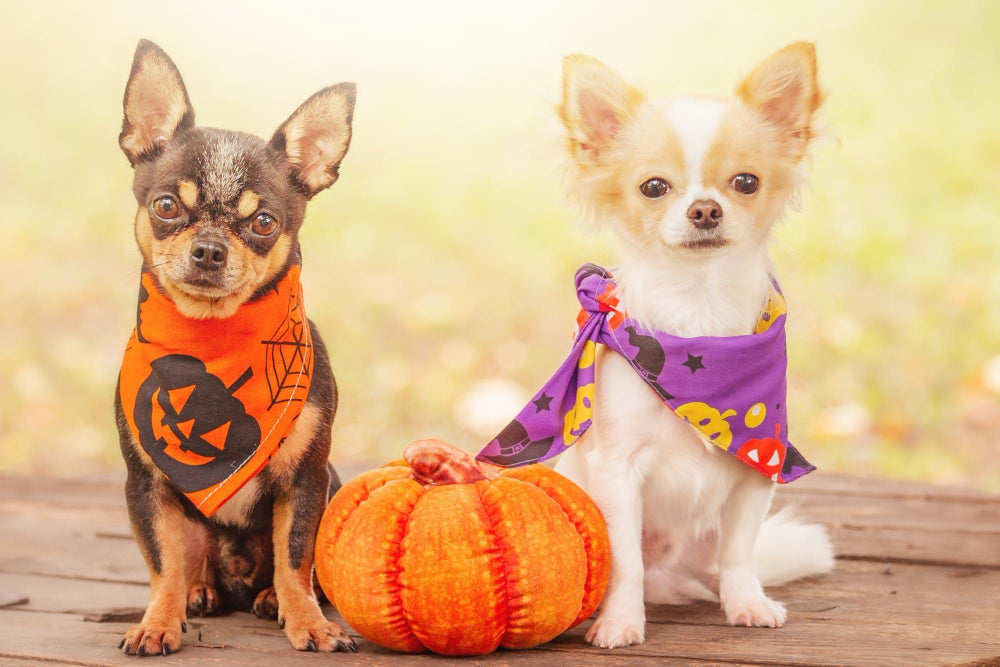Halloween is a thrilling time for humans with its haunted houses, scary costumes, and bags full of candies. However, Halloween can truly be a fright night for our pets, especially dogs and cats. The unfamiliar sights and sounds can be confusing and even terrifying. In this blog post, we'll explore why Halloween can be stressful for our furry friends and provide some helpful tips to ensure their safety and comfort.
Why Halloween Can Be Stressful for Pets:
-
Costumes: While we may find them fun and festive, pets might not recognize their family members in costumes, leading to anxiety or aggression.
-
Frequent Doorbell Rings: The repeated ringing can be startling, especially for dogs, and can cause them to become protective or scared.
-
Candy: Chocolates and many sweet treats are toxic to pets. Xylitol, a common sweetener, can be particularly lethal.
-
Decorations: Items like fake cobwebs, candles, or small ornaments can pose a choking hazard or be ingested.
-
Loud Noises: Fireworks or screaming can be especially stressful.
Tips to Keep Your Pets Safe and Calm:
-
Designate a Safe Space: Set up a room where your pet feels safe, preferably one that's quiet and away from the front door. Include their favorite toys, bedding, and some water.
-
Distract with Toys: Interactive toys or puzzles can keep them occupied and distracted from the noise.
-
Limit Exposure to Costumes: If you want to dress your pet, ensure it's a comfortable and safe outfit. Avoid any costumes that restrict movement, vision, or breathing. Gradually introduce them to the idea and reward them for staying calm.
-
Keep Candy Out of Reach: Make sure all candy is stored where your pet cannot access it. Educate kids about the importance of not sharing their treats with their furry siblings.
-
Watch Out for Decorations: Ensure that your Halloween décor is pet-friendly. Keep candles out of reach, as cats especially might knock them over or burn themselves.
-
Identification: Ensure your pets have proper identification, like a collar with an ID tag or a microchip, in case they bolt out the door when trick-or-treaters come knocking.
-
Reduce Anxiety: Consider using calming aids like pheromone sprays or diffusers, anxiety wraps, or consult with your vet about possible short-term medications if your pet is especially anxious.
-
Stay Inside: Cats, particularly black ones, might be best kept indoors around Halloween to protect them from any potential harm or mischief.
-
Educate Visitors: If you're hosting a party or have friends over, ensure they know the house rules concerning your pets.
-
Monitor for Stress Signs: Watch your pet for signs of stress, like pacing, trembling, excessive barking, or hiding. If you notice these signs, try to calm them and consider moving them to a quieter space.
Remember, our pets don’t understand the concept of Halloween. To them, the world might seem suddenly filled with strange creatures and scary noises. With some preparation and understanding, you can make sure that 'Fright Night' isn't too frightful for your furry friends. Keeping their safety and comfort in mind ensures that the holiday remains a treat for everyone involved!

